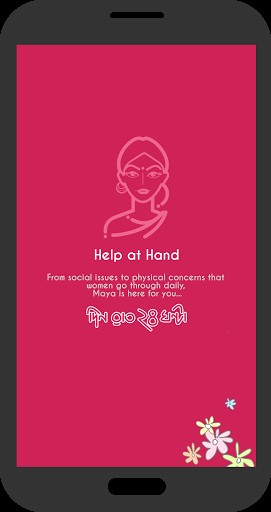Reading Time: 3 minutes
Since its inception in 1972, BRAC has been all about empowering women. Efforts to improve gender relations within the organisation itself resulted in the gender quality action learning programme and ‘mon khule kotha bola’, a forum where all staff members, especially women, could share their opinions with the management. BRAC Gender Justice and Diversity has always been quick to respond to programme participants with questions about issues of violence, sexual harassment and women’s health. The following is an example of one such case received from a BRAC school student.
Since its inception in 1972, BRAC has been all about empowering women. Efforts to improve gender relations within the organisation itself resulted in the gender quality action learning programme and ‘mon khule kotha bola’, a forum where all staff members, especially women, could share their opinions with the management. BRAC Gender Justice and Diversity has always been quick to respond to programme participants with questions about issues of violence, sexual harassment and women’s health. The following is an example of one such case received from a BRAC school student.
I am Masuda. I live in Dhaka. I read in class 6. I got admitted in the madrasa (religious school) beside my house for taking Arabic lessons. Every week on Thursday my hujur (teacher) instructs us how to say our prayers. On the third week, when I along with my classmates were giving sijda (bending while praying), I felt someone touching me. I was very scared and could not concentrate anymore. I noticed it was hujur himself. I could not tell anyone when I returned home, not even my mother. Gradually another week passed. Again Thursday came. I was scared but could not tell anyone that I did not want to go to the class anymore. I went to the class and the same thing happened. I started crying out of fear. I still haven’t told anyone about it. What should I do?
In this day and age, priorities on gender have taken a new shape. With the ‘BRAC Maya project to ensure access to information for gender justice’, technology has helped embrace a dynamic space. Now BRAC can reach out to an even wider group of people more effectively.
Maya Apa is the first interactive app in Bangladesh, giving women and girls the chance to ask questions about social, legal and medical issues. Answers are received within 24-48 hours. The intention behind this initiative is to reach as many women and girls, giving them a space to share, learn and rectify problems they may face in their daily lives. On an average, 130 questions are asked on the Maya Apa app every day, which are responded to by a pool of experts. Here is another example of one of type of questions asked on the website.
I am going through lot of mental pain. I have been married for two years. We had an affair marriage. My husband used to like me a lot. He now tortures me mentally and physically. He makes an issue out of very petty things. He even misbehaves with my family whenever he gets a chance. He tells me that he will get a divorce, but apologises when he calms down. I cannot take it anymore. What do I do? My family may get hurt from my decision, which is why I am unable to do anything.
The questions on the app are algorithmically categorised and answered by experts who range from experienced doctors to certified legal experts and psychosocial counsellors. Sheepa Hafiza, the director of BRAC’s gender justice and diversity programme, says, “This app will not only create greater access to information and services for women all over the country, but also a nationwide consensus for a supportive society”.
For millions of women in this country, access to information regarding basic legal, health and human rights is a luxury. Harnessing the power of the internet, the project enables both urban and rural women to share their problems to get solutions without the fear judgement. It is the latest example of how BRAC adopts new technology to address gender inequality in its interventions.
Ishret Binte Wahid is a young professional at BRAC’s gender, justice and diversity programme (GJD). Mohammad Kamruzzaman is senior manager at GJD.






